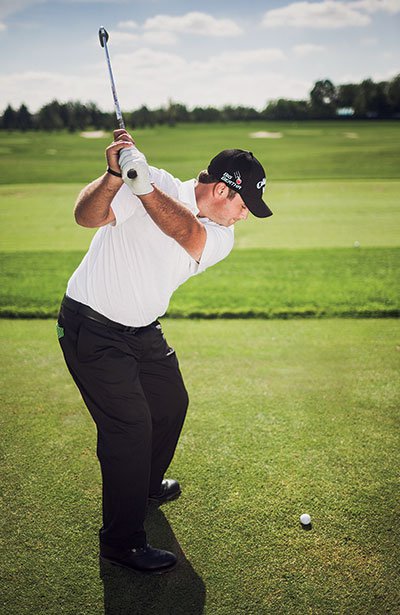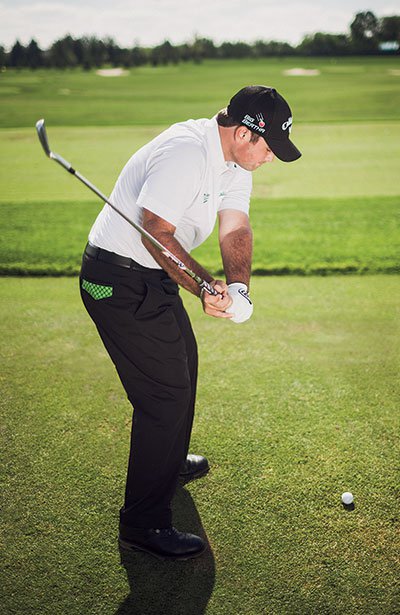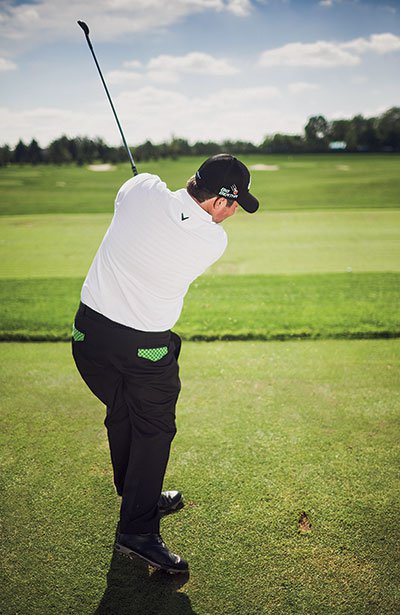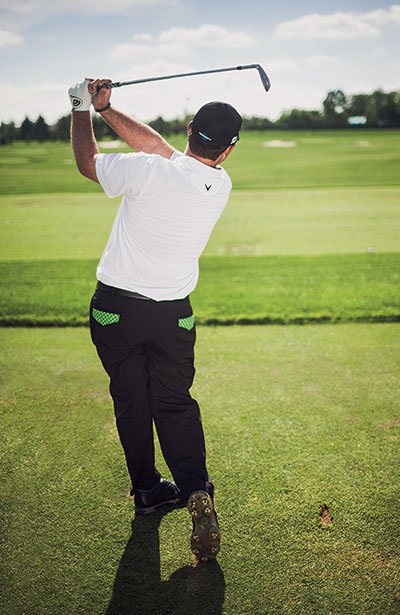How to Take Down the Flags with Your Short Irons
At the 2014 Humana Challenge, I had a streak with my short irons – 8-iron through pitching wedge – where I felt I couldn’t miss. I opened with 63,63,63, firing at every flag and I held on for the win. I’ve been chasing that feeling ever since. With all respect to the other clubs, playing aggressively with the short irons is what leads to low numbers. Your goal should be to narrow your “lines,” or the range of your misses, so you have no fear. To do that, you need good fundamentals and a few repeating swing keys. Here are mine.
BACK: Feel like your hands are ‘inside your chest’
Because the short irons are precision clubs, you need precise fundamentals. Align your feet carefully with the target line, and your hips and shoulders will fall into place automatically. I like my weight distributed 60/40 on my left side, and I keep it that way throughout the backswing. I position the ball in the centre of my stance, but if centre doesn’t feel right to you, play it back a bit – that’s better for solid contact than playing it up.
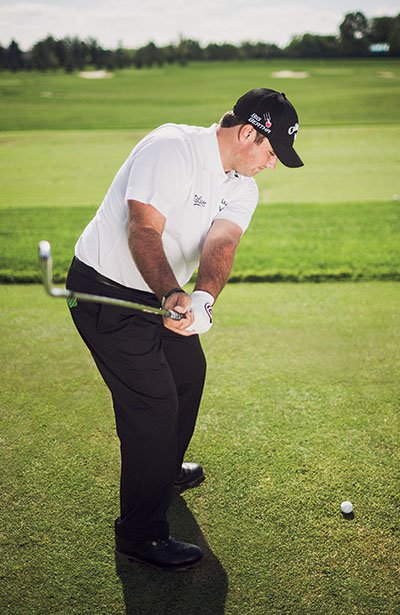
Start the swing with your arms and shoulders moving back together, so one part doesn’t outrace the other. Focus on keeping your hands in front of your torso: I like them to feel “inside my chest” (above).
At the top, my swing has a distinct pause (above), which helps me create a smooth sequence coming down.
Start the downswing all at once (above), so your arms don’t lag behind and cause the club to fall behind you.
DOWN: Keep your feet planted through impact
The outer limit of my 9-iron is 146 metres, and it’s plenty long to get at the tucked flags on tour. But power won’t do you much good if you lose control.
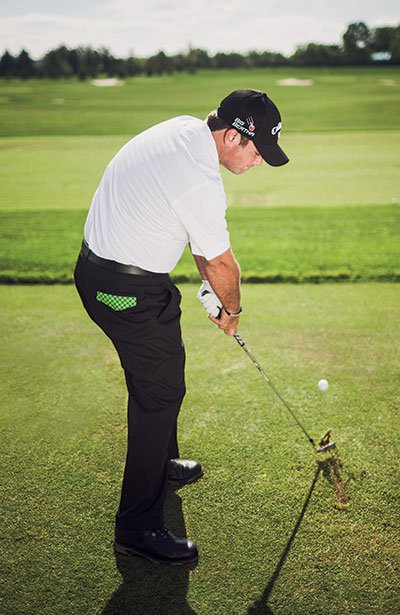
An important key is quiet feet that stay like they were at address: glued to the ground (above). There’s no rolling of the feet, no dramatic weight shift. Your knees should be soft and flexed and stay level through impact.
You also have to control clubface rotation. If you keep your arms in front of your body during the downswing, the face will square up, then close after impact (above). Don’t flip the face closed with your hands, as that will deloft the club and kill trajectory.
The horizontal position of my club at the finish (above) proves I haven’t flipped at the ball. If I had, the shaft would be down my back.
– Patrick Reed has won four times on the US PGA Tour.

